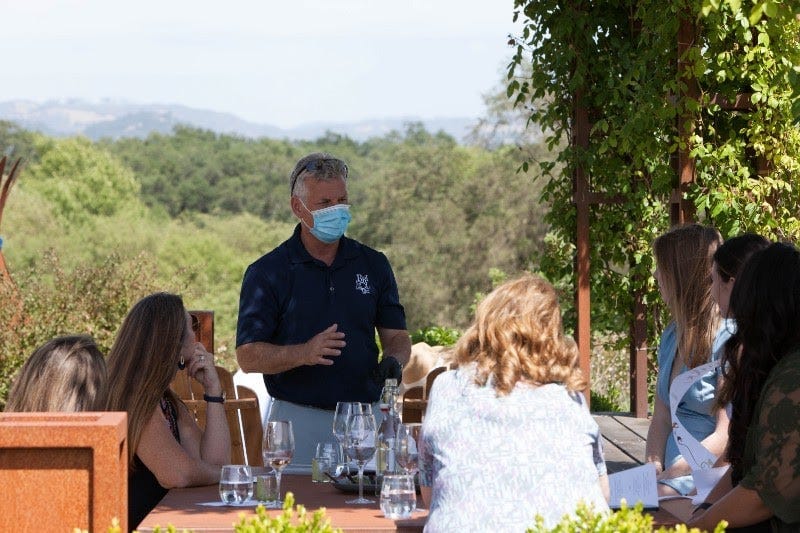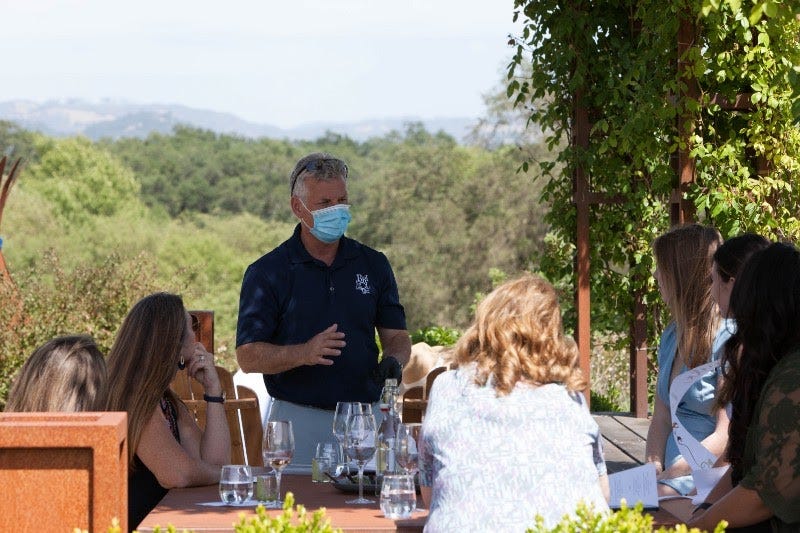
No matter the time, opening a business requires courage and adaptability. But owners have had to take those qualities and max them out to a whole new level in 2020. We all know how much even well-established restaurants, cafés, and wineries are struggling during the pandemic — what about those that are completely brand-spanking new? Yes, San Francisco has had new businesses open during this time that you might not know about yet. These owners have had to quickly change course after months — nay, years — of planning, and in a city that’s already costly to operate in.
We caught up with some of these entrepreneurs to talk about how they’re getting creative to adapt to this moment and serve their customers in unique and safe ways.
Naomi Maruyama of Ramen Zero, San Jose
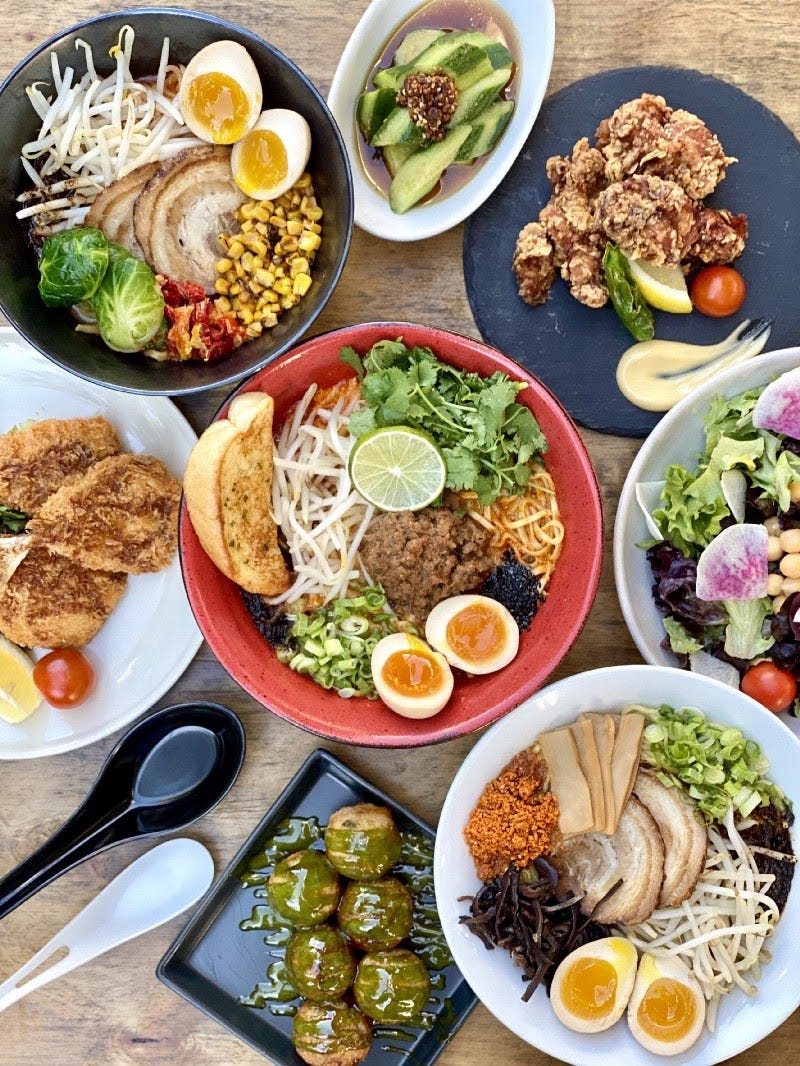
The Bold Italic: Fill us in on the backstory of your business.
We are Zero — a Japanese ramen joint that just opened up on May 13, 2020. Our current executive chef, Yoshiyuki “Maru” Maruyama, and the owner of Kahoo Ramen, Yasu Yamamoto, had been talking about doing the business together prior to Covid-19 and decided to do so despite the pandemic.
How did the shelter-in-place restrictions affect opening your business?
We actually decided to open the shop early due to shelter in place since we still had to pay rent. It definitely encouraged us to open early, but after very careful consideration.
We knew takeout would be our model, so the first thing we did before opening was to create our own website so customers could order and pay online and then pick up. This has been working quite well for many customers who prefer to have contactless payments. We also added a QR code on our window so customers who come in person can scan and order through our website if they prefer. The only human contact is picking up the order.
How did you adjust? Did you pivot in any way?
Many customers think ramen isn’t really the best cuisine for takeout, worrying that the condition of noodles won’t be the same as in the restaurant. But we offer uncooked noodle options to accommodate that, so that customers can cook their own noodles at home for the perfect “chewiness.” We also commissioned San Jose–based artist Angela Smith to create an accompanying manga instruction comic to help our customers make their ramen at home, and we created most of the appetizers based on whether it would hold up for takeout. We have many other dishes we’d like to add to our menu but that we believe are best served in-house, so are holding off for now.
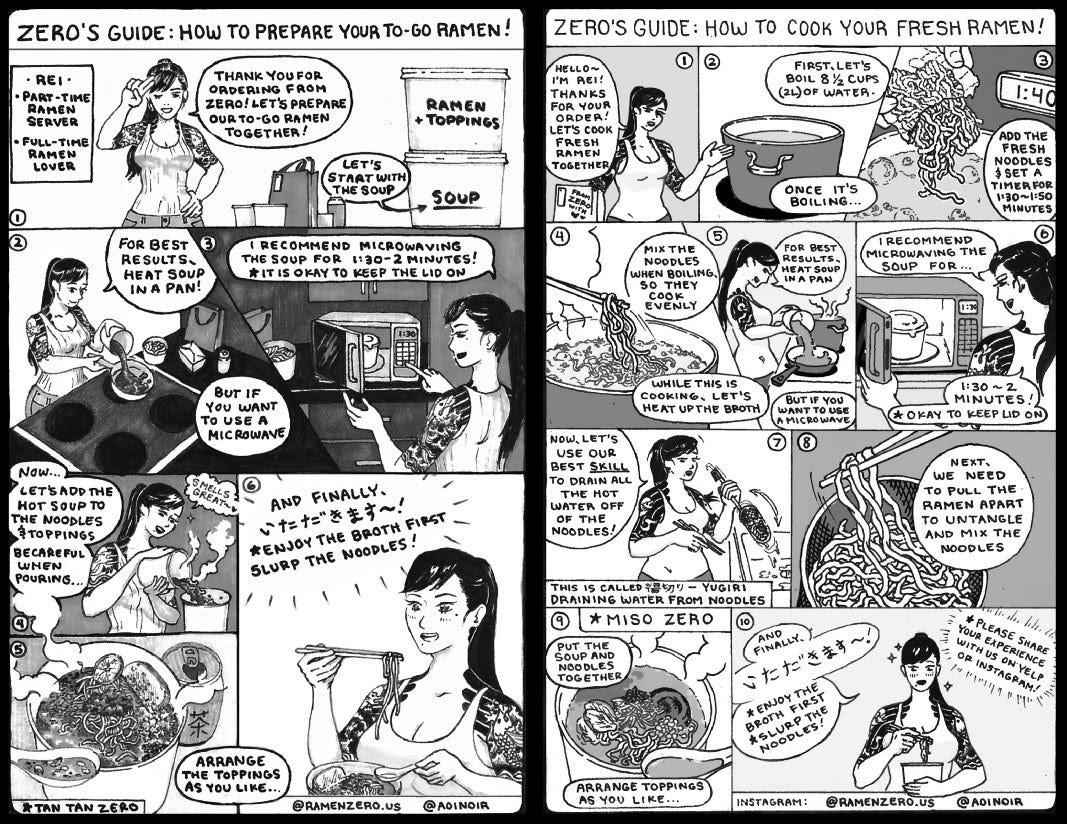
Ryan McIlwraith of Arbor, San Francisco
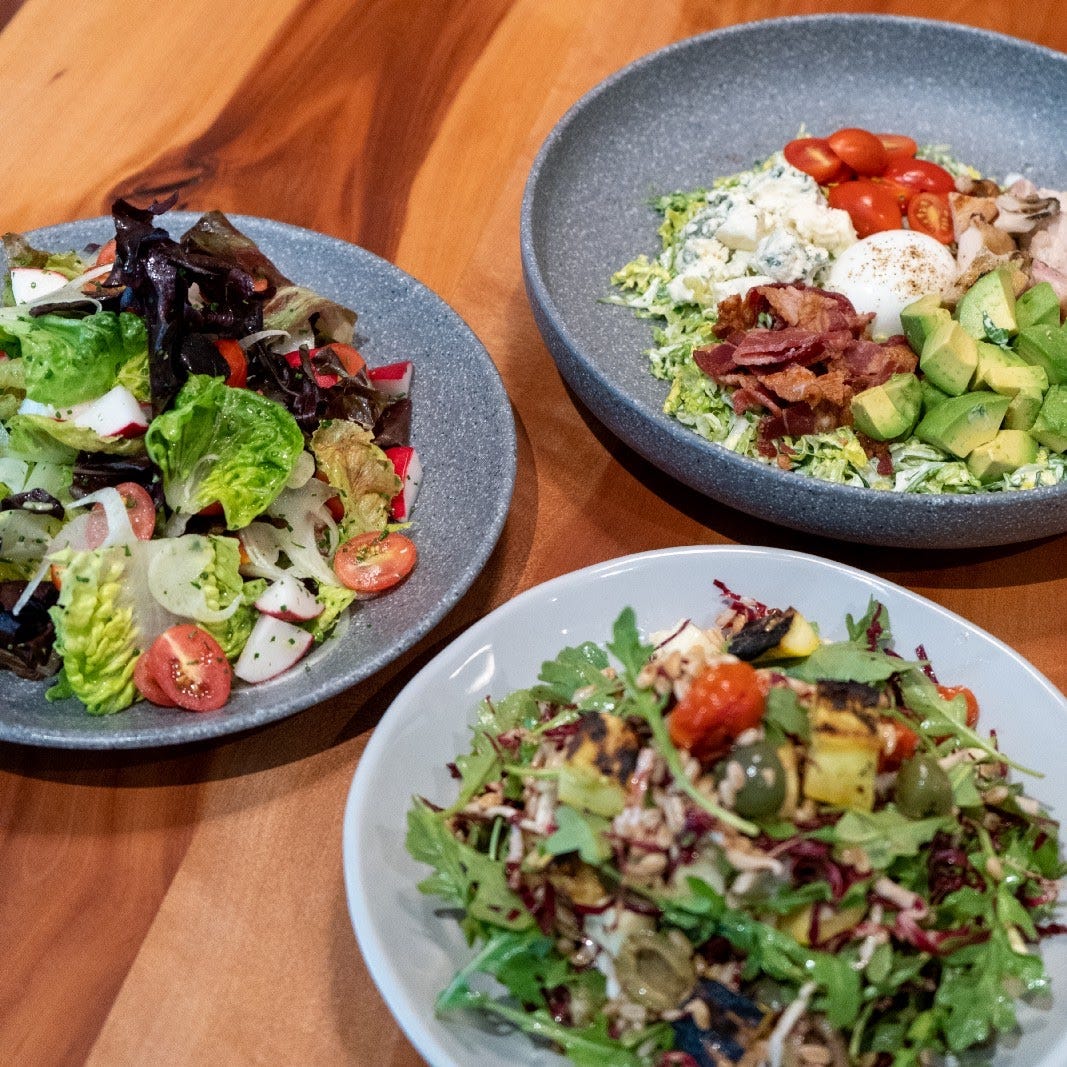
The Bold Italic: Tell us the backstory of your business.
As a group, we had been looking at opening a fast-casual restaurant for years. We decided to do this in the Arlequin Café space with a brand-new kitchen and dining room. We wanted to do American comfort food with an emphasis on including healthy options.
How did the shelter-in-place restrictions affect opening your business?
We decided to shut down operations immediately for everyone’s safety. After the initial quarantine time, about three weeks, we decided to get back to cooking. We converted the space into a commissary kitchen to prepare meals for homeless shelters and churches through the SF New Deal program.
How did you adjust? Did you pivot in any way?
As business picks up, we plan to offer more dishes on the Arbor menu. We are also looking at other offerings as well during this period without dine-in service, such as prepared family-style meals, pantry items, and burger meal kits for home cooks.
Peter Fikaris of the King’s Feet, Berkeley
The Bold Italic: Fill us in on the backstory of your business.
My sister, Christina Stobing, and I opened the Butcher’s Son in 2016, an all-vegan deli and bakery. Since opening that, we’ve acquired an off-site commercial kitchen space and quite a few wholesale accounts (mostly pizza places). We’ve always wanted to open an Italian-style restaurant, since it’s what we primarily grew up eating. Since we’re already producing all the necessary products, like our cashew mozzarella, for example, it was an easy step forward. When Elliot Harrison, the owner of Pizza Moda in Berkeley, approached us about partnering with him to turn his existing restaurant into an all-vegan Italian restaurant, we couldn’t possibly say no.
How did the shelter-in-place restrictions affect opening your business?
We had been planning our opening for the King’s Feet for about three months. Ironically and unfortunately, our opening date was March 16 — the week shelter in place started. We put our plans on hold for a little over a month. Eventually, it came down to deciding that we were either going to open and try to make it work or pull the plug. Since rent was not being deferred and we had already spent the last three months putting money into preparations, we decided to open.
How did you adjust? Did you pivot in any way?
We pivoted from an entree/pasta-heavy menu to focusing on more of the pizza side of the business, with takeout being our only option and people’s eating/buying habits changing. This worked out better for us. Honestly, we’re barely hanging in there. Things have changed dramatically, but the rent and utilities stay the same. We’re a dine-in service business doing only takeout, delivery services are charging 30% (maybe if we’re running a really tight ship that’s our profit margin, and most people want delivery right now), and we’re open maybe two the three hours a day, four days a week. It’s not going to last long for us or most restaurants still trying to stay in business. In two years, we’ll all be eating at Chipotle or McDonald’s or ordering delivery from ghost kitchens. If anyone out there wants to buy our restaurant, let’s talk.
Mark Hanson of Bricoleur Vineyards, Sonoma County
The Bold Italic: Fill us in on the backstory of your business.
As my wife, Elizabeth, and I raised our kids, we always took them to the family ranch in Cloverdale and Sonoma County every summer. We used to joke about buying a place on a vineyard to retire on when the kids were out of college. But when the kids actually got out of college, we realized we didn’t really want to retire. We first bought our property in Windsor seven years ago and have been working on it ever since. We wanted Bricoleur Vineyards to be a place where we could celebrate life’s moments, specifically around charity events, instead of creating our own wine brand.
How did the shelter-in-place restrictions affect opening your business?
Our official grand opening was scheduled on the first Saturday of May. We had booked 14 events with at least 100 to 200 people attending at the property from April through August. All of the events have clearly been canceled. The first week of shelter in place, we had also hired Shane McAnelly, who had left Chalkboard at Healdsburg, to come join our team as executive chef.
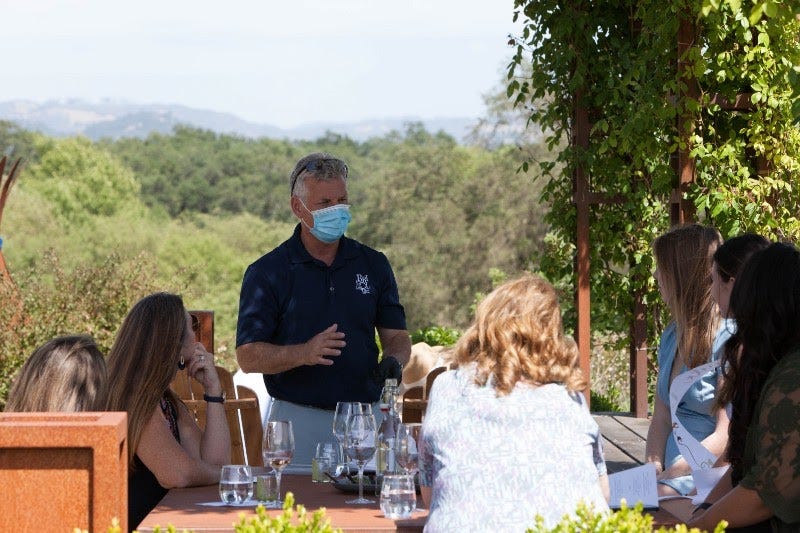
How did you adjust? Did you pivot in any way?
Because Shane had joined us so early on, we immediately started doing deliveries within 20 miles and curbside pickups for pizza and wine bundles. My daughter Sarah and I also thought it would be fun to do a virtual cooking show, since we both use Zoom for work. For the first episode of Quarantine Kitchen, we thought we’d probably have 10 people — including my mom and the chef’s mom. We surprisingly got 50 to 60 people. The next week, we had just under 100 people.
Seeing the success of Quarantine Kitchen, we decided to create dedicated episodes in partnership with charities. We had planned a giant event with the Make a Wish Bay Area chapter back in May, so instead we invited the CEO of Bay Area’s Make a Wish to join me and Chef Shane to cook on Zoom. We gave people the option to text to donate or purchase bottles of our wine, with proceeds donated to Make a Wish. We raised $30,000 as part of this event. We also started offering the option of a collective virtual wine tasting with online purchases. You can ship the same bottles of wine to different parts of the country and do a virtual wine tasting with your loved ones. We’ve just tried to do really creative things. Fortunately, it has worked well for us. Our wine club has doubled in size since February with people from outside of California, like Minneapolis, Atlanta, and Las Vegas.
Since Memorial Day weekend, we’ve also been able to open for outdoor wine tastings. We’re in an area that’s kinda remote in Windsor, so people have had to hear about us and intentionally come here. Socially distanced wine tastings at our facility are really far apart — the tables are 15 to 20 feet apart. So far, everyone’s been wearing their masks and really enjoying it. People are so excited to get out of the house after all this time and aren’t in a hurry to go home, since they’re not going from winery to winery.
Matthew Kenney of Baia, San Francisco
The Bold Italic: Fill us in on the backstory of your business.
Baia is a collaboration between our team and Kyle and Tracy Vogt. Tracy is a longtime animal lover and the founder of Charlie’s Acres Farm. We met when the couple was visiting one of our restaurants in L.A., Plant Food + Wine, and spoke about the opportunity to create a concept in San Francisco that offers high-end, healthy cuisine that is good for both the people who enjoy it and the planet. We recognized that most plant-based dining options in San Francisco are packed nightly and that the demand outweighs the supply when it comes to quality, plant-based food options in the city.
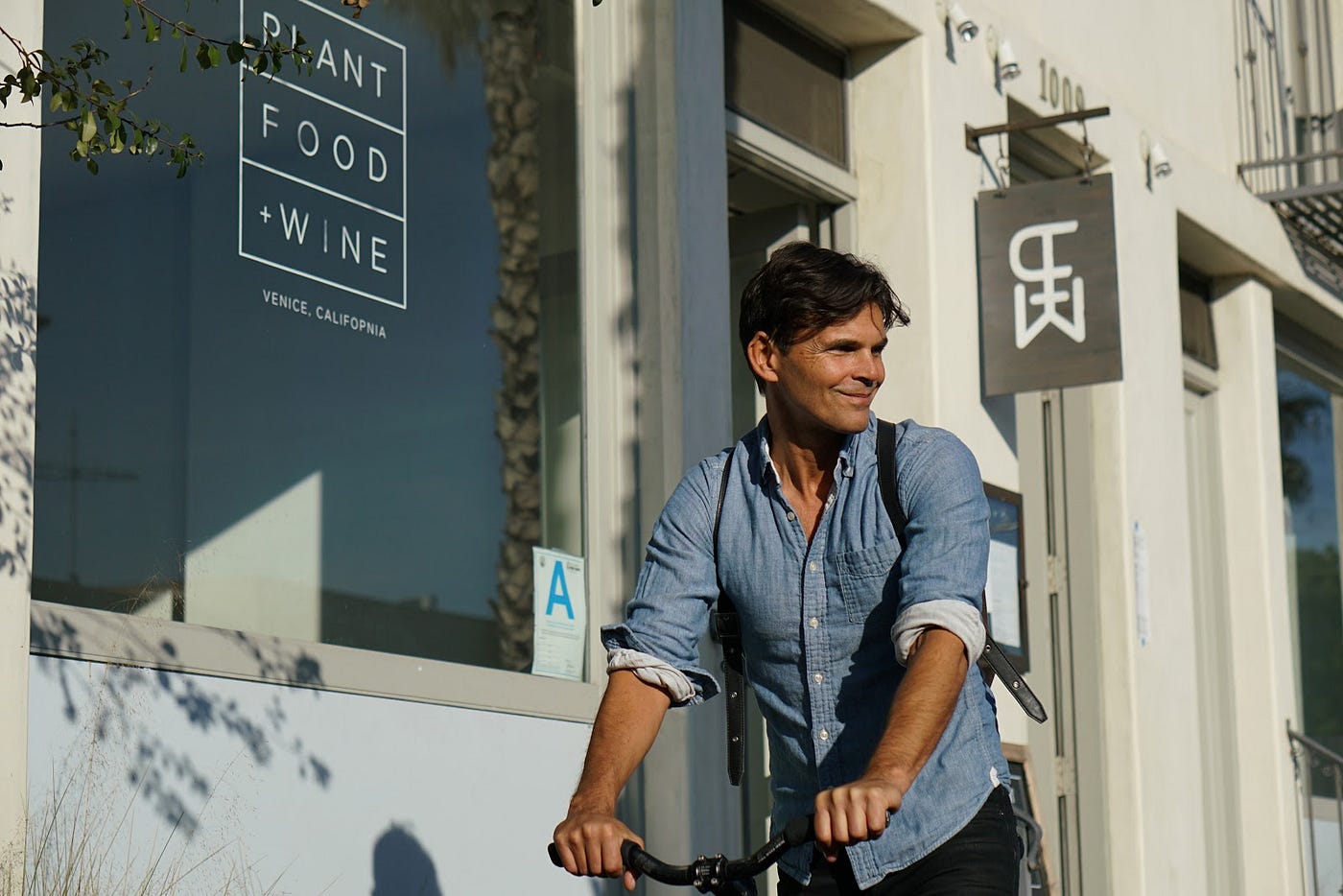
How did the shelter-in-place restrictions affect opening your business?
Baia was set to open in April, but the world had other plans. We reimagined and reengineered the space in a way that we feel works perfectly in the current climate by introducing “A Taste of Baia.” The new concept offers carryout and delivery service only.
How did you adjust? Did you pivot in any way?
Yes, a bit. As I alluded to above, we pivoted to a smaller menu, “A Taste of Baia.” The menu still features plant-based Italian-inspired offerings that will eventually make their way onto the final Baia menu. We also chose to open for delivery and takeout service only until we are able to fully open our dining room. We are certainly looking forward to that time, since it’s a stunning space. We’ve been open for just over a week, and the response has been incredible. Additionally, we have opened a pop-up sushi concept, Woodblock, in the same space, which is really adding to the variety of what we offer.
Eric Fung of Hanabusa Café, Sunnyvale
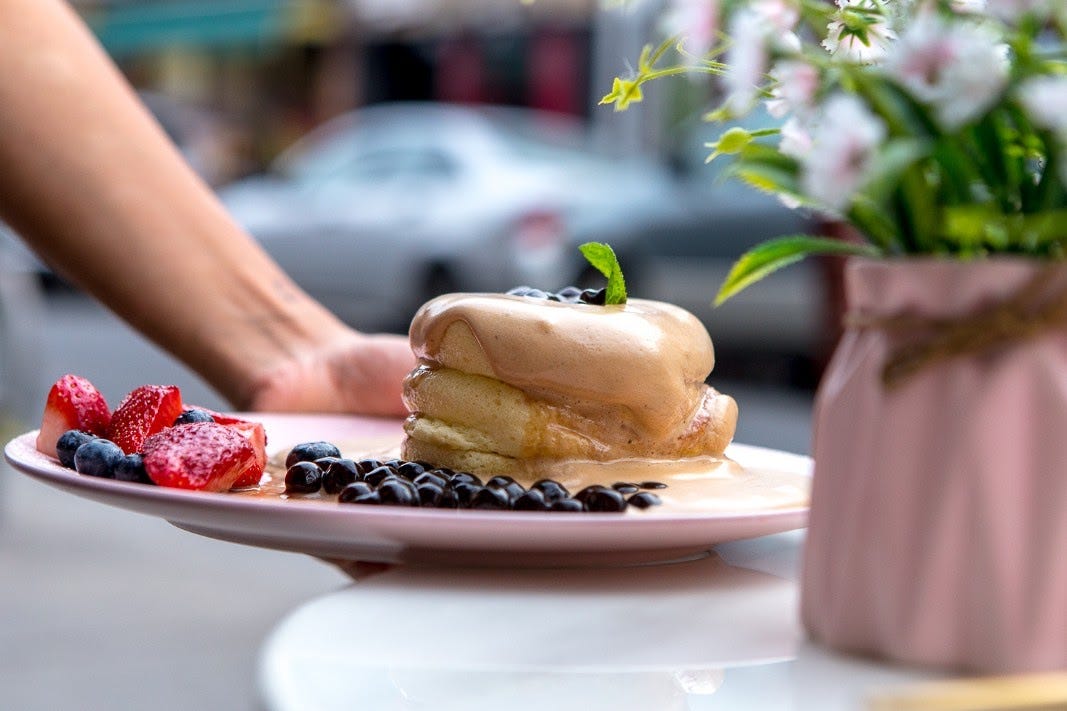
The Bold Italic: Fill us in on the backstory of your business.
Hanabusa Café is a franchise created in Toronto, Canada. At the moment, there are locations in Toronto and Chicago. Our store in Sunnyvale will be the first one in California and on the West Coast. My fiancée, Shana, and I decided to open Hanabusa because we’re passionate about its offerings. While we take pride in our coffee drinks, our main focus is our signature Japanese soufflé pancakes. The original founders of the franchise are creative chefs who spent a lot of time in Japan to perfect them.
How did the shelter-in-place restrictions affect opening your business?
We’re not open yet, and shelter in place definitely affected our timeline for opening. We were shooting for an August open date, but unfortunately many places are either closed or short-staffed due to downsizing. For example, many local government offices have been closed to the public. Also, since our vendors are short on staff, all of our deliveries have been backed up. We’re working with what we have and now planning for a September open date.
How did you adjust? Did you pivot in any way?
Our signature soufflé pancakes are best enjoyed as a dine-in experience. With dine-in not being an option at the moment, we need to find creative ways to execute outdoor seating and to-go orders. Whether it’s changing our store layout or testing out new cups and carryout containers, we’re constantly rethinking the customer experience. At the end of the day, it’s all about making our customers happy. Pandemic or not, we want our customers to have a great experience with us. That’s what drives us the most.



